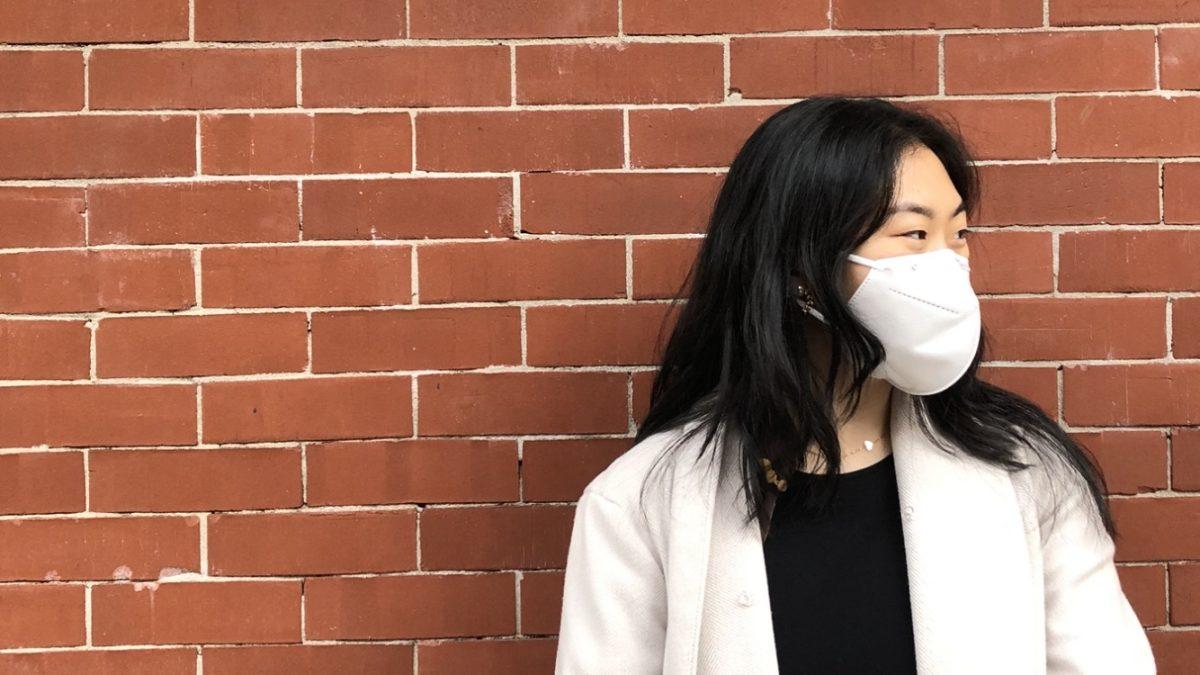Catherine Yong, third year science, technology and society student and Chinese American, said she would frequently assist her father to the grocery stores on weekends in order to prevent him tripping and hurting himself. According to Yong, “that trip could have been from a misplaced shoe or unexpected elevation on the sidewalk. Today, the cause would more likely be racism.”
Soojin Ahn, third year computer science and business student and Korean American, said her thoughts immediately went to equipping her mother on her trip to Manhattan with anything that could potentially protect her – pepper spray, a friend, a guide to navigating New York City without taking public transportation.
Cameron Guanlao, third year mathematical sciences major and Filipino student, recalled an incident in February of 2020, in which he wore a medical mask on the Newark Light Rail to protect others while feeling under the weather, a tradition he practiced before pandemic mandates came into place. Another passenger on the train said to him, “you better not give me your corona… fucking Chinese.”
And Jennifer Magsino, third year biochemistry student and Filipino American, said she frequently has concerns and fears for her parents’ safety. She especially worries for her mother, who works as a nurse in New York City, the site of a brutal, racially-motivated attack of a 65-year old Filipino woman that occurred only one week ago.
These experiences and worries join millions of others, following a marked rise in anti-Asian hate crimes spanning the country, particularly after the onset of the COVID-19 pandemic. The organization Stop AAPI Hate recorded roughly 3,800 hateful incidents against people of Asian descent in the U.S. from the first year of the pandemic, more heavily affecting Asian elders and women. Additionally, the Center for the Study of Hate and Extremism found an increase of 149% in anti-Asian hate crimes from 2019 to 2020.
However, students are hardly surprised with these numbers, emphasizing that anti-Asian hate is not new, especially with a shift in rhetoric around the Asian community in the past few years.
“None of this is surprising to me,” said Guanlao. “What was surprising was actually the fact that news suddenly started reporting instances of Asian hate much more than in the past. This has been an issue that has been affecting the Asian-American community for a long time, but many of these cases were largely overlooked.” In fact, Guanlao said he believes it was recent rhetoric against the Asian American and Pacific Islander community regarding the COVID-19 pandemic that actually brought such incidents into the public light.
“I have always been aware of the suspicion that people leverage toward Asians, particularly those of us who are perceived as “East Asian” or “Chinese,” said Magsino. “Of course the pandemic has exacerbated these sentiments; it’s difficult to navigate certain spheres of social media without encountering some sort of blame directed toward Asian people for the pandemic.”
Yong explained she is not surprised by the shift in rhetoric following President Donald Trump’s administration. “This hate hasn’t sprung up all of a sudden,” she said, but “Trump has given many people the courage to socially accept racism and discrimination.”
“I felt hurt,” said Ahn. “I was hurt because of the reality that as an Asian in this country during a pandemic that hurts us as much as it affects them, that they blame us, hate us for something that we played no part in creating.”
Media Coverage
Media and social media response regarding anti-Asian hate has grown tremendously in the past weeks, with the most resounding message to “Stop Asian Hate.” However, the movement has remained mostly formless, with little specific direction in how to actually address or prevent individual cases of hate crimes before they happen. “I don’t think many of the incidents we see online are helpful,” said Yong. When I see a recorded video of a person being assaulted, I feel like it’s already too late. The damage has been sown. I just watched it happen, so I, too, am a bystander, now.”
Magsino also critiqued the movement. “The label of ‘Asian’ always falls short,” she said. “Asia is an entire continent of different cultures and peoples who may not share anything in common with each other besides the continent. Recent attacks have been targeted toward people who are perceived to be ‘Chinese,” however inaccurate that descriptor may be in reality… We lack the proper terminology or misuse it, resulting in broad movements and organizations such as #StopAsianHate and Stop AAPI Hate unwittingly generalizing so many peoples and possibly overlooking the nuances between individual communities. There is no one size fits all solution or policy for every community.”
Meanwhile, Guanlao thinks that while more can be done, he believes that more coverage is a step in the right direction to addressing underlying issues.
Addressing Discrimination
Regarding how students believe this discrimination can be most effectively addressed, Yong hopes communities can help each other physically, creating safety nets for each other. “We need to teach bystanders how to help victims and those about to become victims of a hate crime. It’s scary to act and get hurt, but it’s also encouraging to know how to aid someone effectively,” she said.
Additionally, as many students noted, hate does not just disappear in regular life just because we don’t experience the violent extent to what we see in the videos. Magsino reminded the gravity of recent New York attacks; “it’s so close to home, in a supposedly more tolerant area of the country, making it harder for us to dismiss these violent acts as exceptional or abnormal events.”
Violent hate is sown much earlier. The Atlanta shooter of eight women, including six Asian women, which occurred on March 16, said his violence stemmed solely from his “sexual addiction.” However, to many Asian women, sexualization and racialization are inextricably intertwined. “Speaking as a Filipino person,” said Magsino, “I hope that people can be more conscious of how the fetishization of Asian women in America has been contributed to by historical U.S. military presence in our countries.” Magsino explained that these causes can be deeply ingrained and contribute to the dehumanization of and eventual potential sexual violence, and must be addressed earlier. “I feel that some people believe we can ‘Diversity Reading List’ our way out of racism. While uplifting our stories will certainly help, we have to address more ingrained causes.”
Guanlao echoed such thoughts. “In my view, sharing trendy infographics and making donations, while helpful to some extent, are not enough. Even new government regulations to battle systemic racism are not enough. We have to look at ourselves and how we act towards other people. Recognize any unconscious bias you might have towards people different from you, and work on that.”
“Finally, give a helping hand wherever needed,” continued Guanlao. If you witness an act of aggression towards someone, regardless of who that person is, don’t just stand by. Speak out against it and help the person that was harmed… Staying silent is what will keep these instances of discrimination happening.”
Magsino and Guanlao are both grateful to have friends and family that can sympathize or have experienced similar microaggressions themselves. However, both noted they have not received any meaningful support from NJIT. “NJIT hasn’t really mentioned this issue much, aside from messages from administration,” said Guanlao. “I would love, however, for there to be more events where Asian cultures are celebrated, especially since a large position of NJIT’s student body is of Asian descent.”































